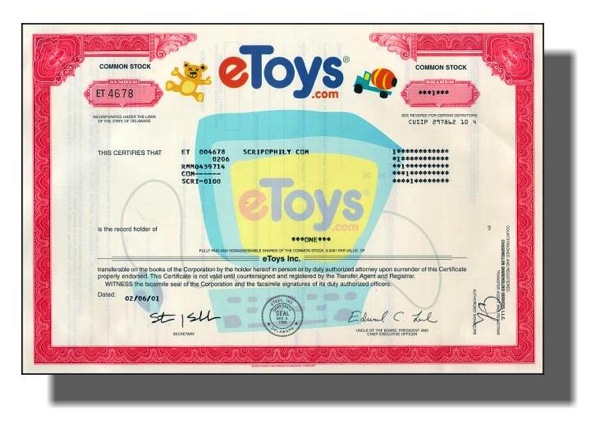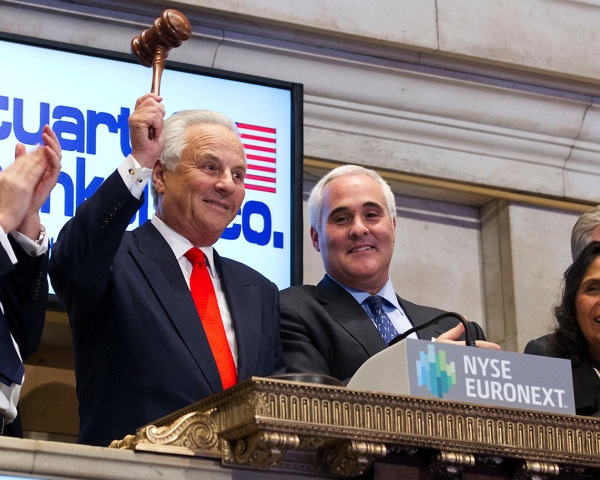Picture this: you have just come up with your million dollar idea. Snappy Name? Check! You’re ready to take the next step in creating a brand new legal entity so you can start distributing shares to potential investors.
You have also decided that you don’t need the flexibility (or the legal expense) of an LLC, and have yet to be given any reason not to be a YADC (Yet Another Delaware Corporation).
You’ve gotten halfway through the BizFilings process (or something similar) when you come across a question. How many shares would you like to authorize? And what should the par value be?
You have no idea. You’re stumped. Luckily, we’ve helped hundreds of companies with this exact process. Here’s what you need to know.
Make no small plans
Most advice out there suggests that you start with 10,000 shares, with the mindset that “you can always authorize more later.” While I understand the logic behind that approach, I would like to present a different perspective that you might not have heard before.
My philosophy is to “make no small plans”. As an entrepreneur, you should start with a goal and work backwards, dream a little bigger than what you have.
With that sentiment still ringing in our ears, let’s start with the goal of filing a $1 billion Initial Public Offering (IPO) on the New York Stock Exchange. Initial public offerings are usually priced in the $10 per share range. By that logic if you want to achieve a $1 billion valuation at $10, you’ll need 100 million shares.
So take a deep breath. Look a long way into the future and plan for massive success. Now, enter a value of 100,000,000 shares.
Give yourself a pat on the back. You have a clear goal laid out to work toward. That’s step one of any great enterprise.
One factor in this analysis is how the state of Delaware calculates annual franchise fees. There are two methods. The first, and the default one, is the Authorized Shares Method.
If you took my advice and authorized 100 million shares, next year you’ll get a bill from the State of Delaware for $180,000. Clutching the bill in your hand, you’ll curse my name…at least until you remember that there’s a second method for calculating franchise tax. If you calculate franchise tax with the Assumed Par Value Capital Method, you’ll come up with a much lower number–generally around $350.
Of course you could authorize as few as 5,000 shares, calculate your franchise tax with the Authorized Share Method, and only have to pay $75. If you never intend to issue employee stock options and really want to save money, that’s the preferable option.
I think that’s not a good mindset to start with. The extra $275 buys you a great deal. From the get-go, you have clearly, loudly, and publicly declared your lofty aspirations for your new company. When investors, venture capitalists, lawyers, and employees (as well as skeptical family and friends) ask why on earth you decided to authorize 100 million shares, you’ll be able to tell them that your future IPO will be priced at $10 a share with a company value of $1 billion. You’ve stated to your listeners that you intend to get big in no uncertain terms.
What you have right now may be small. But if you make no small plans, there’s a chance one day that it’ll be huge.
100,000 Shares > 10,000 Shares
The second benefit to authorizing 100 million shares ties into the laws of large numbers. When it comes time for you to issue stock options to employees, directors, contractors, and others, 100,000 will sound like more than 10,000 shares.
Numerically, it is. It may not be worth more, but you’ll still have more shares. Although anyone who’s even slightly knowledgeable probably only cares what percentage of the company each share represents, there’s no denying that they still have a visceral appreciation that more is…well, just more.
And your employees, of course, can also do the IPO math. This approach makes it clear to them that if they stick around and you make it long enough to file an IPO, then those 100,000 shares will make them millionaires. The goals are simple, the math is easy, and the message is very clear.
No Par No Way
The other number you’ll need when filing your incorporation is the par value per share. A word to the wise: don’t set the share value to “no par”. You might end up falling out of the Assumed Par valuation methodology and wind up with a big franchise tax bill.
My suggestion is that you start with 0.00001, a par value of 1/1000 of a penny. If we complete the equation (100,000,000 shares x 0.00001), your new company now has a value of $1000. You can symbolically balance this equation out by opening your new bank account with a $1000 deposit. The universe is now in balance again.
More Mental Math
As long as we keep dreaming big, it can also be very helpful to fill in some of the other numbers. We can set aside 20 million shares for our initial public offering representing 20% of our valuation, 10 million shares as a 10% employee stock option pool, 30% for the founders, and 40% for all of our loyal investors.
While all of these numbers are purely hypothetical at this stage (perhaps even a bit mythical), they will help guide you with share allocations during the early years. It can be immensely satisfying to watch your initial share price move from fractions of a penny to pennies, dimes, and then dollars.
Keep your head in the clouds. Shoot a little high, dream a little big, and you might just end up with more than you hoped for.
Want more startup 101? Visit our Cleveland200 Toolkit.




